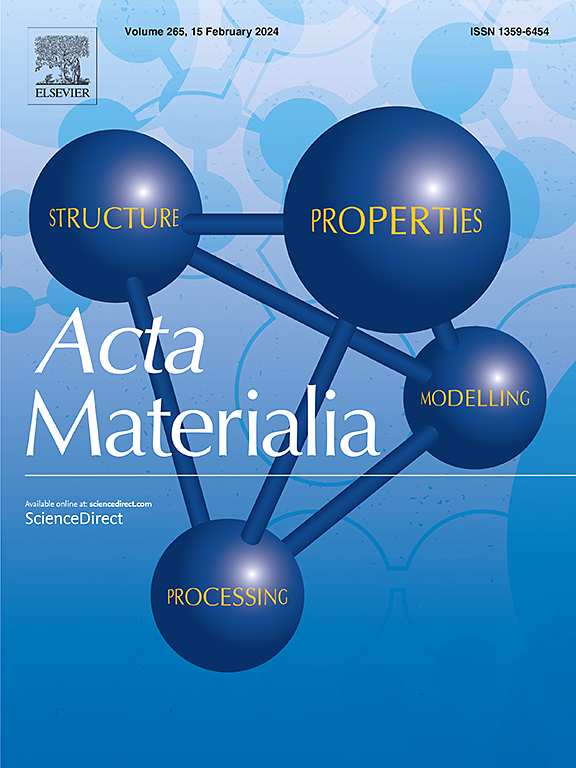增强预时效对Al-Mg-Si合金AA 6014中团簇和析出的调制
IF 8.3
1区 材料科学
Q1 MATERIALS SCIENCE, MULTIDISCIPLINARY
引用次数: 0
摘要
研究了固溶热处理与常规预时效(PA: 85℃,小时)之间外加短脉冲时效处理(SA: 180 ~ 220℃,数十秒)对AA 6014合金烤漆后力学性能的影响。拉伸试验表明,与常规预老化(仅PA)相比,含SA和PA的强化预老化可以显著改善涂料的烘烤反应。为了解释这一现象,采用正电子湮没寿命谱、电阻率测量、差示扫描量热法、透射电子显微镜、原子探针层析成像和MatCalc计算来识别不同时效阶段的微观结构变化。研究发现,淬火后多余的空位有助于SA过程中团簇的快速成核,在随后的PA过程中团簇生长,并且由于其相似的化学性质,在涂料烘烤过程中容易转变为β"沉淀。密集分布的β"相有效地阻碍了位错的运动,从而提高了涂料的烘烤强度。本文章由计算机程序翻译,如有差异,请以英文原文为准。

Modulated clustering and precipitation in an Al–Mg–Si alloy AA 6014 via enhanced pre-aging
The effect of an additional short spike aging treatment (SA: 180 to 220°C, in tens of seconds) between solution heat treatment and conventional pre-aging (PA: 85°C, in hours) on the mechanical properties of an AA 6014 alloy after paint baking was evaluated. Tensile tests show that such enhanced pre-aging including SA and PA can significantly improve the paint bake response compared to conventional pre-aging (PA only). To interpret this phenomenon, Positron Annihilation Lifetime Spectroscopy, Electrical Resistivity Measurements, Differential Scanning Calorimetry, Transmission Electron Microscopy, Atom Probe Tomography and MatCalc calculations were applied to identify the microstructural changes in different aging stages. It is found that the excess vacancies available after quenching assist in rapid nucleation of clusters during SA, which grow during subsequent PA and transform easily to β" precipitates during paint baking owing to their similar chemistry. The densely distributed β" precipitates are considered responsible for the improved paint bake strength as thy efficiently hinder dislocation movement.
求助全文
通过发布文献求助,成功后即可免费获取论文全文。
去求助
来源期刊

Acta Materialia
工程技术-材料科学:综合
CiteScore
16.10
自引率
8.50%
发文量
801
审稿时长
53 days
期刊介绍:
Acta Materialia serves as a platform for publishing full-length, original papers and commissioned overviews that contribute to a profound understanding of the correlation between the processing, structure, and properties of inorganic materials. The journal seeks papers with high impact potential or those that significantly propel the field forward. The scope includes the atomic and molecular arrangements, chemical and electronic structures, and microstructure of materials, focusing on their mechanical or functional behavior across all length scales, including nanostructures.
 求助内容:
求助内容: 应助结果提醒方式:
应助结果提醒方式:


